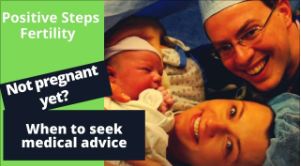The graduation of advanced fertility treatment such as the upper levels of IVF happens from the beginnings of spontaneous efforts at conception or low-cost oral medication and insemination.
Many can be reassured that, though there are exceptions, many people undergoing IVF have great outcomes. A large recent study from New Jersey showed women with three chromosomally normal blastocysts had a 92% cumulative take-home baby rate, which is very encouraging.
What is the challenge of advanced fertility treatments?
The challenge is that there were women in the 8% who didn’t bring home a baby and also not all women get three normal blastocysts with IVF, as this usually requires approximately 25 eggs if under the age of 35.
Can you predict how successful a woman will be with IVF treatment?
A few variables go into this:
How do egg quality and quantity affect IVF?
If there are fewer eggs, there are fewer chances. Similarly, if over the age of 35, eggs are more likely to have mistakes in the DNA, so there are fewer good eggs among those available. This is the driving predictor of IVF outcomes (beyond lab-quality).
How do sperm quantity and quality affect IVF?
Though sperm are less often the source of lower embryo quality, one has to watch for advanced paternal age or severe male factor, such as when sperm need to be removed directly from the testicle. These can lead to lower embryo quality and interestingly these issues can be associated with single-gene disorders which, unless inherited and known, usually can’t be picked up with embryo biopsy (IVF-PGT-A).
Is IVF good for Recurrent Miscarriage?
Many factors can contribute to this, but often it relates to issues with egg or sperm quality. If a couple has “bad DNA” this doesn’t mean there are no good eggs or sperm, but it may be harder to find. When all other things are equal, a couple with recurrent miscarriages is more likely to have abnormal DNA for their embryos relative to other couples.
Does Heavy smoking or drinking affect IVF treatments?
Though some people get pregnant with circumstances related to heavy drinking, beyond creating opportunity, it doesn’t help. By some estimates, stopping smoking and reducing alcohol consumption to one drink a day (and not seven on Saturday averaged over the week) can improve pregnancy rates by 40% (i.e. if 10% per month with oral medication and insemination, up to 14%). We often see poorer quality embryos in couples with heavy smoking or drinking and see better embryos and more successful pregnancy chances when they stop.
Ultimately, all four of these often relate to DNA issues. There can be other contributors such as uterine factors (with chronically thin endometrium from previous surgeries, infection, or inflammation), but these are far less common than these four causes. Though not all fertility can be fully predicted, recognizing these core causes can give better estimates for a woman’s chances of successful conception and give more realistic expectations as to how they will do with treatment.
If you’re wondering about your fertility and what advanced fertility treatment is available to you, know that many couples don’t need IVF and lower cost, lower-tech solutions often work. For those that need advanced fertility treatments such as IVF, the most meaningful factors can be identified and people can get realistic expectations for their chances with treatment. It is a humbling field, where one can see people with the best chances not conceive and people with very poor chances be successful. Though we can never fully control the cards that are dealt, we can do a lot to stack the deck in your favor. Please let us know if we can help you have a full house!
You can find us on YouTube, Facebook, and Instagram. We also have a fertility support group that meets twice monthly. Feel free to join in that as well. Whatever you do, don’t go down the lonely road of fertility all by yourself.
Call us at 833-767-7837 and let’s help you have the child of your dreams!
J. Preston Parry, MD, MPH




